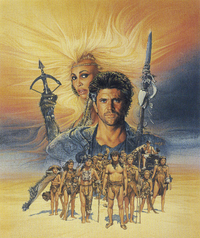Earlier this month, I told you about a scam called "Beneaththecover.com," which purports to offer authors inside news and expert advice about the publishing industry when, in fact, it’s just a front for a bunch of vanity press and book promotion hucksters selling their wares. This point was driven home the other day when one of their so-called "experts," vanity press publisher Yvonne DiVita, offered this outrageous lie in a post she had the chutzpah to title "POD Myths Dispelled – Get The Scoop Here":
In today’s
emerging digital world, if you truly want to attract that big name
publisher, use a professional POD firm to self-publish because the big
name publishers are watching.
The best way to attract a publisher is to write a good book, not blow thousands of dollars having it printed in POD form by a vanity press. If anything, printing your book in POD is more likely to prevent a publisher from taking you or the book seriously.
DiVita is one of a pack of POD vanity press hucksters who prey on the gullibility, desperation, and ignorance of aspiring authors. She argues that vanity presses aren’t merely printers but real publishers because they pay more attention to their authors than real publishers do. What she neglects to mention is that vanity presses like hers make the vast majority of their money off their authors, not from booksales, and that all that attention they slather on their clients (not authors, ladies and gentlemen, clients) is to convince them to spend even more on their worthless services. She writes:
IF authors don’t sell enough books with their publisher, POD
or otherwise, the author isn’t trying hard enough. I’ve worked with
traditional publishers, and they require an extensive marketing plan
from authors before they will consider publication. And research shows
that books published by traditional publishers sell around 150-300, on
average.
That’s right, blame the author for the fact that their POD vanity press books aren’t sold in stores and are unlikely to sell to anyone but the client… and then back it up with pointless "facts."
I’ve had over two dozen books published by real publishers. No editor has ever asked me for an "extensive marketing plan" before considering my books.I’ve also asked a few published friends…and they have never been asked for marketing plans, either. But they are novelists, and perhaps they would be asked for one if they wrote non-fiction. So let’s give DiVita the benefit of the doubt and say publishers want marketing plans along with non-fiction book proposals. To which I say… So what? How is that a persuasive argument for going to vanity-press instead of a real publisher? You’ll need a marketing plan either way. The key difference is that a real publisher will pay you and a vanity press will ask for your credit card number.
I’ve scoured the web and I can’t find any "research" that backs up her outrageous claim that most books published by genuine publishers sell only 150-300 copies.
The closet statistic I could find to her numbers was a 2004 Bookscan study that tracked sales of 1.2 million books sold that year. According to their figures, the average book of any kind published in 2004 sold 500 copies. The study noted that only 25,000 titles sold more than 5,000 copies each,
500 sold more than 100,000 copies and only ten sold more than a million
copies. But the figures are controversial, because the sales were not broken down by genre, like fiction or non-fiction, nor did they differentiate between titles from large
publishers or small ones, traditional publishers or vanity presses.
But lets pretend her figures are right. How is that an argument for going to a vanity press? Authors published by real publishers whose books only sold 500 copies in 2004 were still paid to be published. They earned money, though not as much as they’d hoped.
By comparison, most vanity press authors will lose money because they paid to be published. But don’t take my word for it, let’s look at the 2004 sales figures from iUniverse, the biggest name in self-publishing:
18,108: Total number of titles
published
792,814: Number of copies
printed
14: Number of titles
sold through B&N’s bricks-and-mortar stores (nationally)
83: Number of titles that sold at least 500
copies
Out of 18,000 titles and nearly 800,000 copies printed, only 83 authors sold more than 500 copies. Good God. Think of all the money that authors lost …and how much iUniverse made. That’s the business that DiVita is in…and it’s a profitable one. For the printer, not the author.
So what is the truth about POD self-publishing companies? It’s obvious. Vanity presses are in the "author services business", not the publishing business which, in a rare bit of candor, even DiVita concedes on her vanity press website:
Windsor Media Enterprises specializes in author services. We offer idea development, manuscript critiquing, editing, proofreading, formatting and cover design, for new and existing authors.
And for that, they charge you a price and that’s how they make their money. That is their business. And if your book, by some miracle, manages to sell a few copies, they make a little more.
A vanity press will tell you any lie they can to convince you that they are real publishers (when they are merely selling editing and printing services), that self-publishing is the route most successful authors take (it’s not), and that you have as much of a chance to sell books with them as you do going with a traditional publisher (you don’t).
Is Yvonne DiVita really someone qualified to give writers sound advice? Or is she someone with a clear conflict-of-interest hoping to coerce naive authors into buying her product? The answer is obvious, and it came right from the founders of Beneaththecover.com when they tried to solicit my brother Tod into being one of their experts:
Beneath the Cover is a cooperative venture for building marketing platforms of everyone involved.
That’s what should be written on the masthead of their home page, not "Where book industry professionals who know almost everything go to discuss news, insights, and evolving industry issues." And it should be stated in big print on each and every piece of "advice" that they give.



